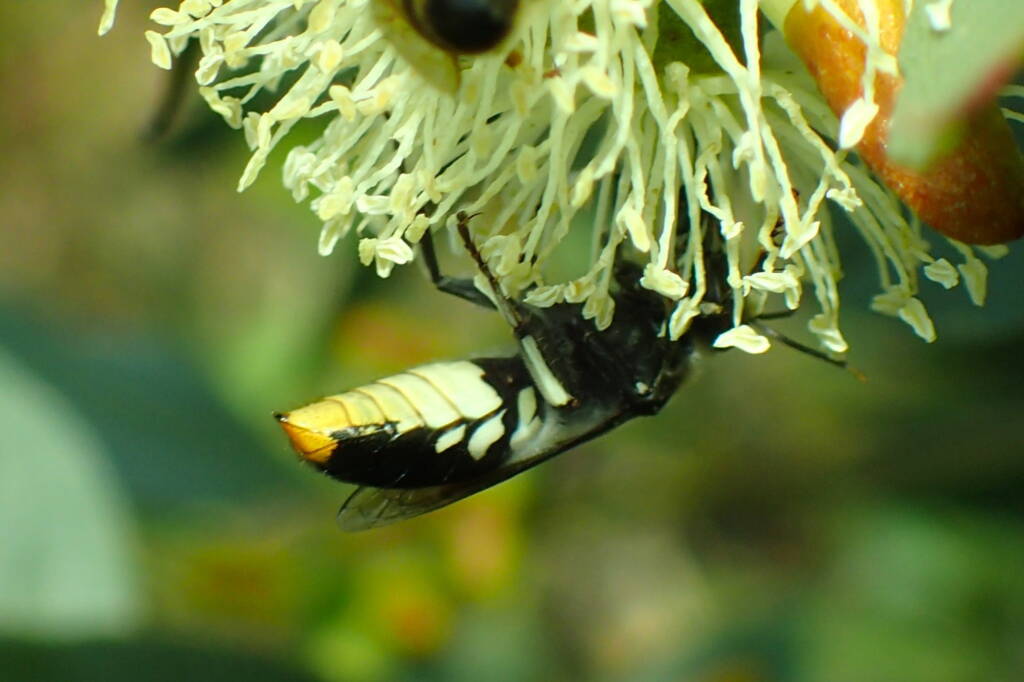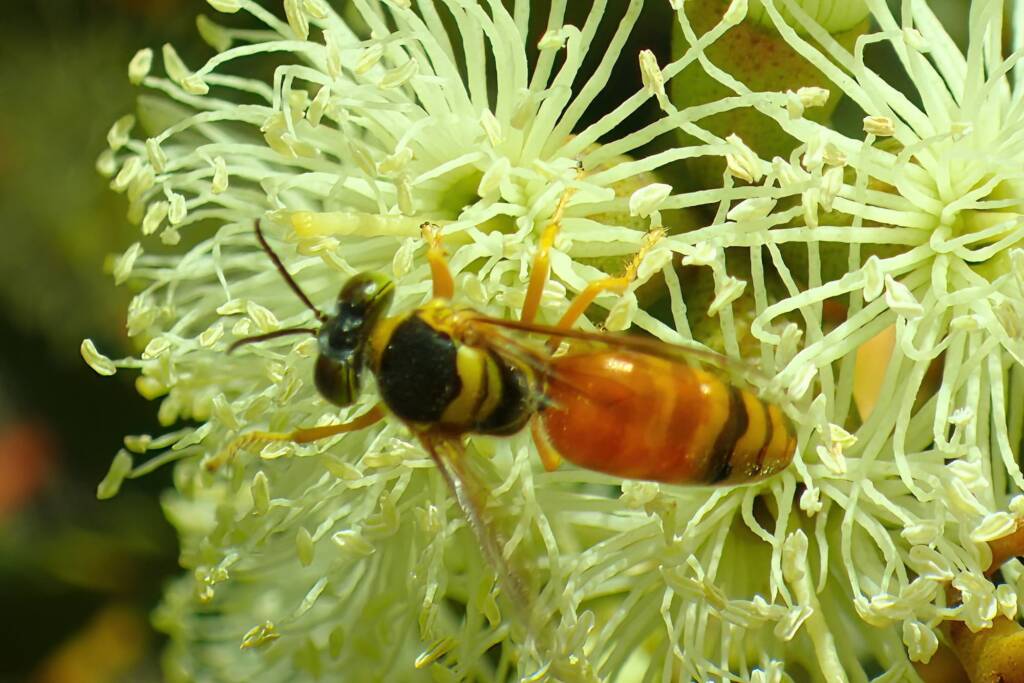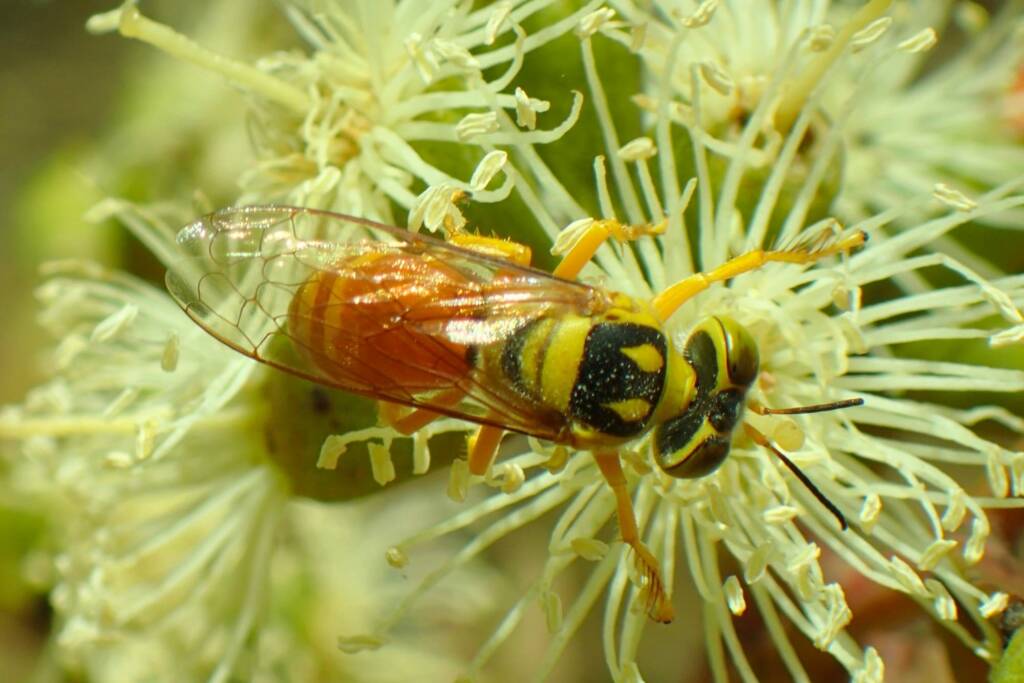Wasps — Batavia Coast and Midwest WAAcanthostethus sp Bembix spp Bembix vespiformis Bethylid Wasp Braconid Wasps Hatchet Wasps Velvet Ants
The Bembix genera is a large cosmopolitan of medium to large, sometimes brightly coloured predatory sand wasps found around the world. Australia has a number of species, with many yet to be identified.
Current recorded observations on iNaturalist, show the biggest concentration of Bembix genera in Australia, is along the coastal regions, especially in the south (particularly in New South Wales, Victoria, South Australia and south-west of Western Australia). Bembix wasps are found throughout Australia, including the arid regions of Central Australia. At time of writing, iNaturalist had 142 named species from around the world, there being many unidentified species.

The following species is currently identified. See our blog: say hello to Bembix lupiae for more information.

See our blog: it has two tear drop markings on it’s back… for more information.

- Scientific classification
- Kingdom: Animalia
- Phylum: Arthropoda
- Class: Insecta
- Informal: Pterygotes
- Order: Hymenoptera
- Superfamily: Apoidea
- Informal: Spheciformes
- Family: Crabronidae
- Subfamily: Bembicinae
- Genus: Bembix
Footnote & References
- Photographs Bembix sp, Geraldton, Midwest WA © Gary Taylor
Wasps — Batavia Coast and Midwest WAAcanthostethus sp Bembix spp Bembix vespiformis Bethylid Wasp Braconid Wasps Hatchet Wasps Velvet Ants
Insects — Batavia Coast and Midwest WANative Bees Wasps
Fauna — Batavia Coast and Midwest WAInsects
The Batavia Coast and Midwest WAFauna
Western AustraliaThe Batavia Coast and Midwest WA Bungle Bungles – Purnululu National Park Great Southern WA Stirling Range National Park
